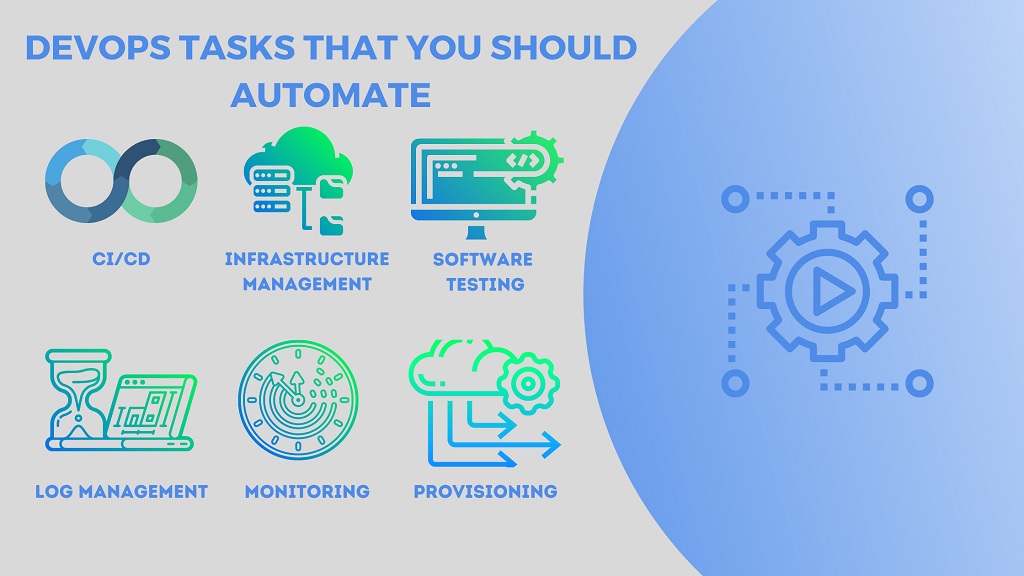GitLab announced the general availability of GitLab Duo with Amazon Q.
As software development teams grow, so does the number of headaches they have to deal with — or "the curse of growth" as some like to refer to it. One such headache is the pressure to deliver new products and features consistently.
Many teams respond to this pressure by adopting a DevOps culture to ship products and features more speedily while preserving business value.
But "adopting a DevOps culture" means different things to different teams. Running a docker run command to automate application deployment might suffice for some. However, one command might not be enough for others with more extensive product portfolios. For these, automating multiple tasks within the DevOps process might be necessary to boost speed, precision, and consistency while reducing human error.
The latter, for many organizations, boosts the likelihood of meeting business goals with higher operational consistency and lower potential for human error. But the journey begins by understanding a team's DevOps flow and identifying precisely what tasks deliver the best return on engineers' time when automated. The rest of this blog will help DevOps team managers by outlining what jobs can — and should be automated.

Continuous Integration/Continuous Delivery
Proponents of agile methodology see CI/CD as the best practice for DevOps teams(link is external). By automating integration and delivery, software development teams can seamlessly optimize code quality and software security in the background while committing their focus to business objectives.
This automation accelerates the speed to market through quicker, more efficient shipping of software products.
Automatable processes that fall within the CI/CD umbrella include:
■ Builds
■ Code commits
■ Deployment of packaged applications in production/testing environments
Infrastructure management
DevOps teams can test applications in a simulated production environment much earlier in the software development lifecycle (SDLC) by automating infrastructure. This is especially useful as configuration and maintenance of infrastructures such as networks and servers is time-consuming. Automating infrastructure exchanges the burden of manual configurations with the gift of multiple test environment provisioning — so that developers can resolve common deployment issues early in the SDLC.
Provisioning
Automated provisioning facilitates the provision of computer resources on-demand and without human intervention. By automating provisioning, businesses can accelerate product delivery with a highly scalable, flexible architecture and dynamic resource allocation.
Application Deployment
According to Google's DevOps Research and Assessment Program(link is external) (DORA), deployment automation is instrumental in accelerating software delivery and improving overall organizational performance.
With deployment automation, engineers can minimize the risk of production deployments by seamlessly deploying software to production and test environments. Automation also expedites the feedback loop, enabling teams to implement faster tests and updates.
Software testing
Test automation reduces the dependence on human intervention during testing. Test scripts, automation frameworks, and tools help engineers check product functionality more efficiently. Test automation can be applied to a range of testing tasks, including:
■ Unit testing
■ UI/UX testing
■ Smoke testing
Log management
Applications rely on logs for fault identification, and each application can generate a significant number of logs. The process of error identification and resolution can be eased with automation by using log management tools for aggregating logs.
Monitoring
As new features are added, so is an added layer of complexity for monitoring the performance of applications. By automating monitoring, DevOps teams can identify and resolve any declines in the customer experience more efficiently.
Final Word
Against an industry background of engineer scarcity, DevOps automation reduces the number of human engineers required to perform critical tasks. Introducing automation into an organization's DevOps culture accelerates multiple processes while facilitating seamless scaling with more efficient workflows. DevOps team managers should choose tools with high automation capabilities to utilize their engineering resources more efficiently and see results faster.
Industry News
Perforce Software and Liquibase announced a strategic partnership to enhance secure and compliant database change management for DevOps teams.
Spacelift announced the launch of Saturnhead AI — an enterprise-grade AI assistant that slashes DevOps troubleshooting time by transforming complex infrastructure logs into clear, actionable explanations.
CodeSecure and FOSSA announced a strategic partnership and native product integration that enables organizations to eliminate security blindspots associated with both third party and open source code.
Bauplan, a Python-first serverless data platform that transforms complex infrastructure processes into a few lines of code over data lakes, announced its launch with $7.5 million in seed funding.
Perforce Software announced the launch of the Kafka Service Bundle, a new offering that provides enterprises with managed open source Apache Kafka at a fraction of the cost of traditional managed providers.
LambdaTest announced the launch of the HyperExecute MCP Server, an enhancement to its AI-native test orchestration platform, HyperExecute.
Cloudflare announced Workers VPC and Workers VPC Private Link, new solutions that enable developers to build secure, global cross-cloud applications on Cloudflare Workers.
Nutrient announced a significant expansion of its cloud-based services, as well as a series of updates to its SDK products, aimed at enhancing the developer experience by allowing developers to build, scale, and innovate with less friction.
Check Point® Software Technologies Ltd.(link is external) announced that its Infinity Platform has been named the top-ranked AI-powered cyber security platform in the 2025 Miercom Assessment.
Orca Security announced the Orca Bitbucket App, a cloud-native seamless integration for scanning Bitbucket Repositories.
The Live API for Gemini models is now in Preview, enabling developers to start building and testing more robust, scalable applications with significantly higher rate limits.
Backslash Security(link is external) announced significant adoption of the Backslash App Graph, the industry’s first dynamic digital twin for application code.
SmartBear launched API Hub for Test, a new capability within the company’s API Hub, powered by Swagger.
Akamai Technologies introduced App & API Protector Hybrid.













